The challenges facing advocacy in times of war were outlined at a conference in Chisinau
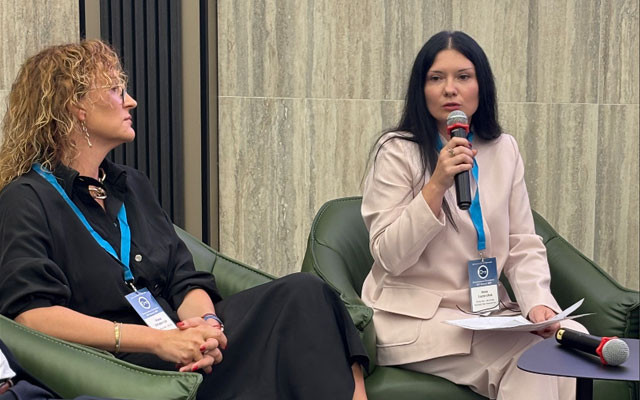
Thanks to the current law, Ukrainian advocacy has constitutionally enshrined independence and special status, reinforced by the 2016 judicial reform. However, wartime has presented the profession with new challenges.
Hanna Lazarchuk, a member of the BCU, spoke about the most common violations of the rights of Ukrainian advocates during her speech at the International Conference of the Bar Association of the Republic of Moldova, held on September 12 in Chisinau.
One of the most sensitive issues during wartime has been the identification of advocates with their clients, especially in cases involving war crimes. Society and the media often try to portray defense advocates as sharing the views or actions of their clients, which is contrary to the essence of the profession. The UNBA Committee on information policy has tried to explain the inadmissibility of such actions, in particular through a special guide for journalists. However, the media emphasized that, despite the legislative ban, there is no liability for violations. The gap is to be closed by a law passed by the Verkhovna Rada on July 16 and sent to the President for signature. It introduces administrative liability for identifying an advocate with a client. Protocols will be drawn up by regional bar councils, and decisions will be made by courts. According to H. Lazarchuk, this mechanism complies with the provisions of the Council of Europe Convention on the protection of the profession of advocate, prepared with the participation of Ukraine and already signed by 18 states.
An equally acute problem is the restriction of advocates' access to clients in territorial recruitment centers and the risk of their illegal mobilization while providing legal assistance. There have been cases where advocates were handed a summons immediately upon arrival at the TCC, required to undergo a military medical examination, and mobilized, effectively depriving them of the opportunity to perform their professional duties. Defense attorneys are often denied access to the TCC premises on the grounds of «security restrictions», or are handed summonses during court hearings and client interrogations. The UNBA has attempted to establish communication with the competent authorities in order to guarantee the right to legal assistance during the detention and delivery of persons to the TCC. In a number of regions, with the assistance of bar associations, it was possible to set up special rooms for confidential meetings. At the same time, citizens in the TCC are often persuaded that they do not need an advocate, which leads to errors in documents and subsequent mobilization.
The participants of the event also drew attention to cases where individuals posed as «military advocates» and offered citizens forceful actions to avoid mobilization. Such actions not only discredit advocacy, but also actually hinder the work of the Armed Forces and create a negative attitude towards the profession in society, emphasized Hanna Lazarchuk.
The UNBA records all violations and responds to them within the limits of its authority. One of the key tasks of the organization is to support Ukraine's ratification of the Council of Europe Convention on the protection of the profession of advocate.
Popular news
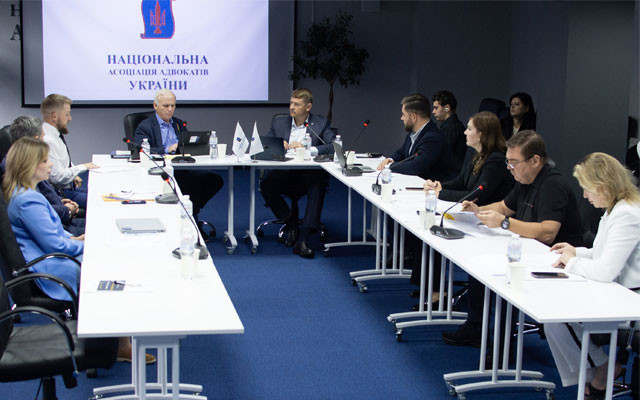
Discussion
Attempts to discredit advocates go beyond freedom of speech — IBA and UNBA meeting
On September 17, as part of his working visit to Ukraine, Mark Ellis, Executive director of the International Bar Association (IBA), visited the Ukrainian National Bar Association, where a working meeting was held on ensuring guarantees for the practice of law in Ukraine.
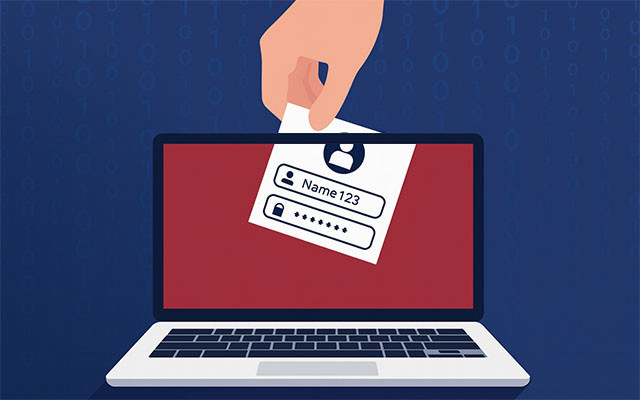
Other
Data from registers on powers of attorney and wills compromised – NCU
During testing of the e-notary system, it was established that the test (training) version contained all data on powers of attorney, wills, and documents registered in the Unified Register of Powers of Attorney and the Inheritance Register copied up to a certain date.
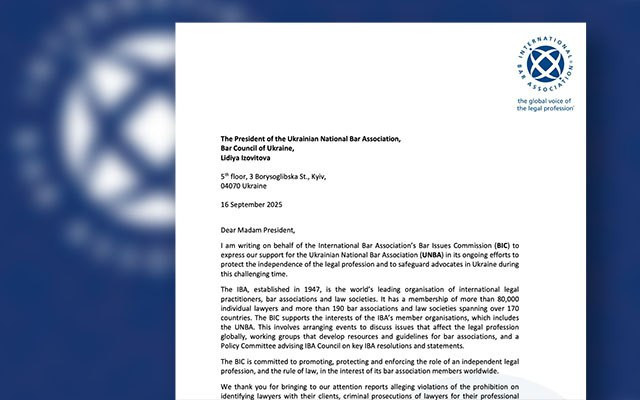
Guarantees of the practice of law
IBA’s BIC supports UNBA: advocates should not be identified with their clients
The International Bar Association's Bar Issues Commission (IBA’s BIC) has sent a letter to the President of the Ukrainian National Bar Association expressing concern over the UNBA's reporting of attacks on the independence of the legal profession and the safety of lawyers in Ukraine.
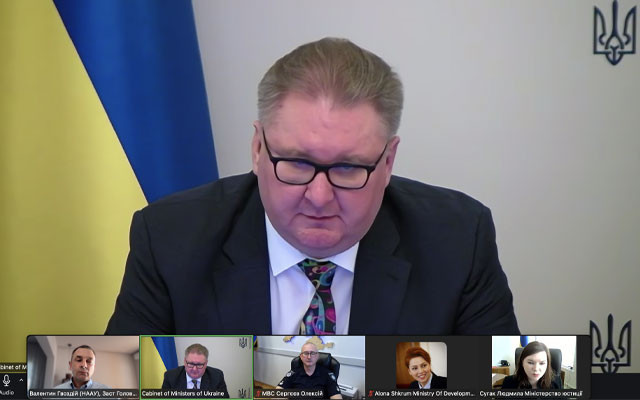
Legal Aid
UNBA declares discriminatory changes to the procedure for selecting advocates for FLA
The government Committee chaired by Vice-Prime-Minister for European and Euro-Atlantic integration Taras Kachka rejected the advocacy's comments; the UNBA emphasizes the violation of European standards and is preparing a judicial appeal if the resolution is adopted.
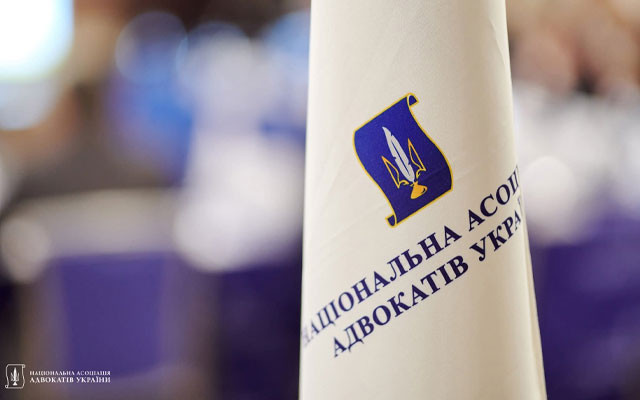
Guarantees of the practice of law
The BCU called on the President to sign the Law on responsibility for identifying an advocate with a client
On September 15, 2025, the BCU held an extraordinary meeting and adopted an appeal to the President requesting him to sign Law No. 4547-IX of July 16, 2025, which introduces administrative liability for publicly identifying an advocate with a client.
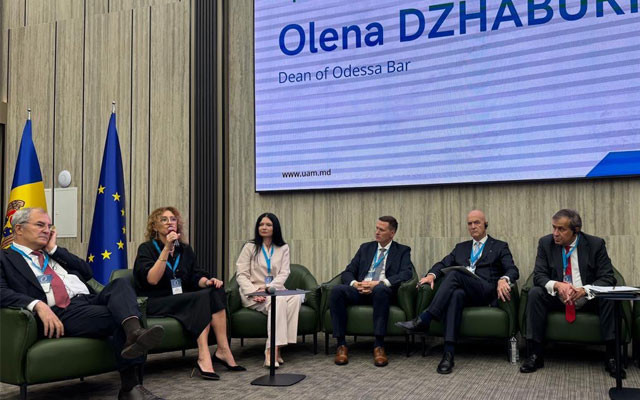
Discussion
Pressure due to mobilization and criminal cases: who will protect advocates?
Martial law creates new challenges for advocacy: violations of professional rights have become systematic, with the most common forms of pressure being the mobilization of advocates while they are performing their professional duties and their prosecution as defendants in cases where they were acting as defense counsel.

Discussion
The challenges facing advocacy in times of war were outlined at a conference in Chisinau
Thanks to the current law, Ukrainian advocacy has constitutionally enshrined independence and special status, reinforced by the 2016 judicial reform. However, wartime has presented the profession with new challenges.
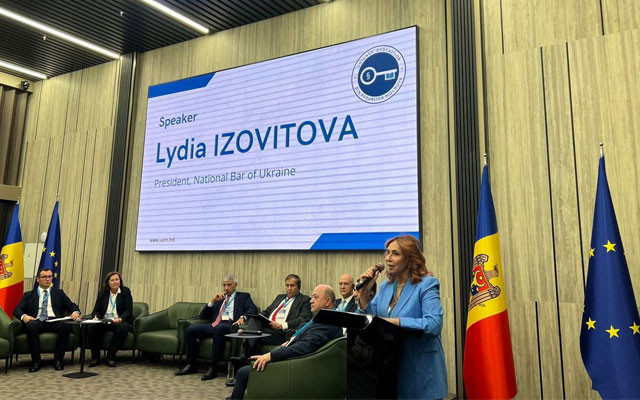
Discussion
Lidiya Izovitova: CCBE monitoring should become a shield for advocacy against political interference
On September 12, in Chisinau, during the International Conference of the Bar Association of the Republic of Moldova, the President of the Ukrainian National Bar Association Lidiya Izovitova proposed strengthening the role of the Council of Bars and Law Societies of Europe (CCBE) in the process of reforming the advocacy in countries moving towards the European Union.
Publications

Censor.net Protecting advocates – protecting justice: addressing concerns about the new law

Ihor Kolesnykov A BRIEF SUMMARY REGARDING THE APPLICATION OF THE ORDER ON EXTENDED CONFISCATION IN LATVIA REGARDING FINANCIAL ASSETS OF…

Valentyn Gvozdiy WORKING IN A WAR ZONE

Lydia Izovitova Formula of perfection

Sergiy Vylkov Our judicial system is so built that courts do not trust advocates

Iryna Vasylyk Advocacy in the proclamation of Independence of Ukraine

Oleksandr DULSKY When we cross the border of the Supreme Anti-Corruption Court, we get into another department of the National Anti-Corruption…

Vadym Krasnyk The UNBA will work, and all obstacles and restrictions are only temporary inconveniences
